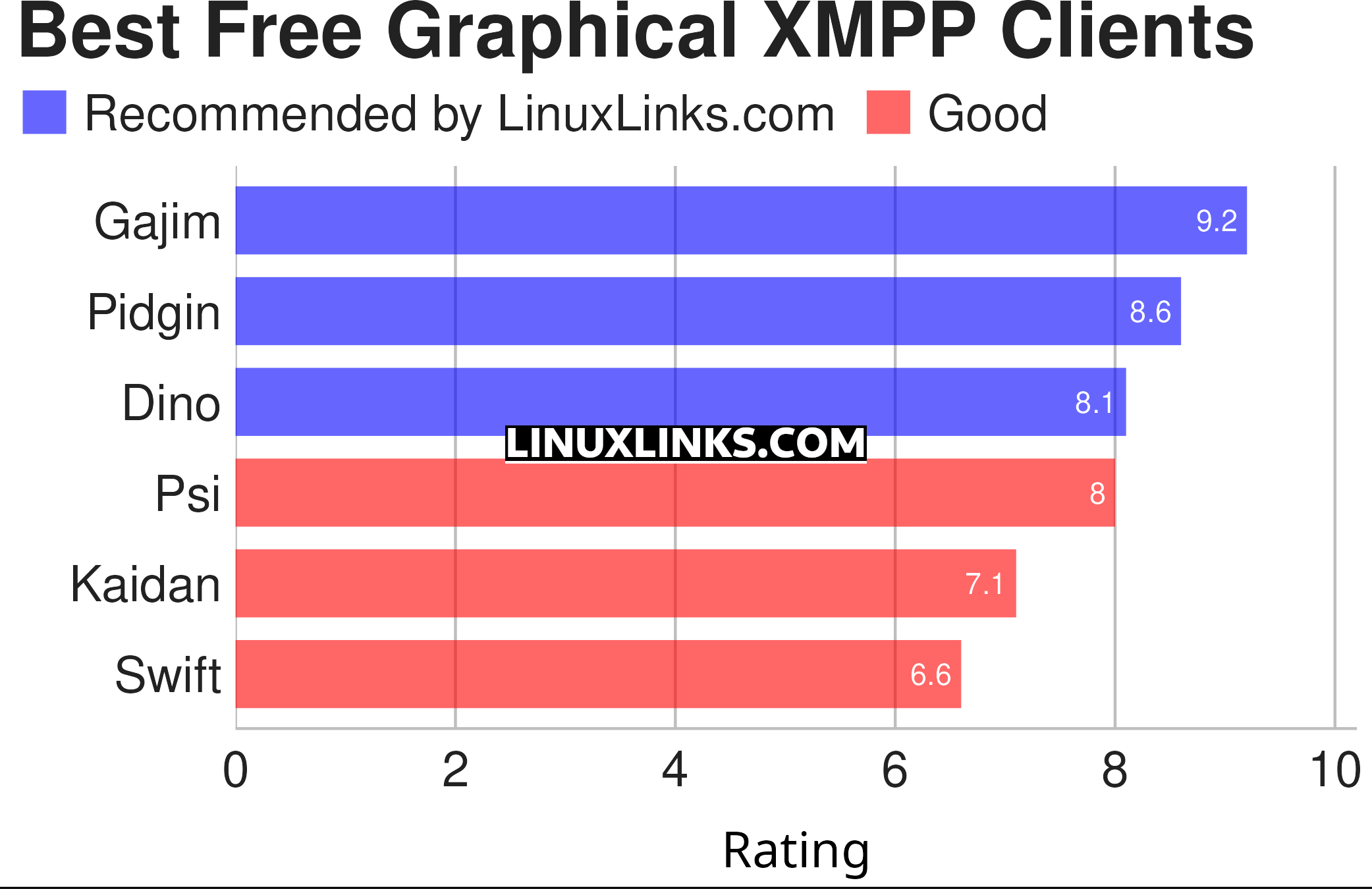XMPP (also known as Jabber) is an open and free alternative to commercial messaging and chat providers. It is a secure battle-tested protocol developed by an independent standards organization.
XMPP was designed for real-time communication, which powers a wide range of applications including instant messaging, presence, media negotiation, whiteboarding, collaboration, lightweight middleware, content syndication, EDI, RPC and more.
The “X” in XMPP stands for “Extensible”, which means the core protocol is updated and extended with more features through a transparent process at the non-profit XMPP Standards Foundation every now and then. This results in some clients not implementing every feature of XMPP; for example, a typical instant messaging client won’t implement Internet-of-Things functionality.
Set it up for your company, organisation, or just your family and friends. You are in control, and your communication is private to you.
You can set up your own XMPP service on your server (dedicated, VPS, etc.) or on a box on your local network, to serve your home or office. Either way you can use it to converse with anyone else on the Jabber network, including people using Google Talk, probably the largest Jabber service on the network.
Here’s our verdict captured in a legendary LinuxLinks-style ratings chart. All of the software is free and open source goodness.

| Graphical XMPP Clients | |
|---|---|
| Gajim | Full featured and easy to use XMPP client |
| Pidgin | Multi-protocol instant messaging client |
| Dino | Clean and reliable Jabber/XMPP experience while having your privacy in mind |
| Psi | Cross-platform XMPP instant messaging client |
| Kaidan | Simple, user-friendly and modern chat client |
| Swift | Clean design and comprehensive feature set |
This article has been revamped in line with our recent announcement.
 Read our complete collection of recommended free and open source software. Our curated compilation covers all categories of software. Read our complete collection of recommended free and open source software. Our curated compilation covers all categories of software. Spotted a useful open source Linux program not covered on our site? Please let us know by completing this form. The software collection forms part of our series of informative articles for Linux enthusiasts. There are hundreds of in-depth reviews, open source alternatives to proprietary software from large corporations like Google, Microsoft, Apple, Adobe, IBM, Cisco, Oracle, and Autodesk. There are also fun things to try, hardware, free programming books and tutorials, and much more. |
